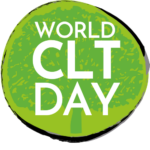The Ownership Trap
In many cases, outright ownership may simply not make the most sense for urban farmers. This can be surprising in a society where ownership has been cultivated as the “gold standard” when it comes to having security and control in a home or parcel of land. But as many American homeowners have discovered since 2007, a piece of property may not always be worth more than the cost of financing it – ownership can have significant downsides.
Even if an urban farmer sought to purchase an undeveloped parcel with a price so low that financing was not necessary, there would still be upfront costs of securing title and paying transaction fees. Outright ownership could also create property tax obligations, which as we discuss below, might be mitigated by leasing from a nonprofit land trust. Then there are the costs of municipal services, insurance liability concerns, and the difficulty of selling the property in the event they wish to discontinue farming.
Added together, these costs and liabilities could make ownership a trap. Rather than assuming ownership is either the gold standard or something always to be avoided, the key is to determine the degree of security of tenure that best matches a particular grower’s goals and experience.

